I Dipped My Toes Into the Sometimes Particular and Thoroughly Pleasant World of Randonneuring

One of my favorite ways to measure how pleasant a place is to ride bikes is the "cow rule." Essentially it's how many miles you have to ride until you see some farm animals. On the Tscheschter Kaundi 200K Brevet, I spotted my first cows around the 30-mile mark. From there, the randonnée only got better.
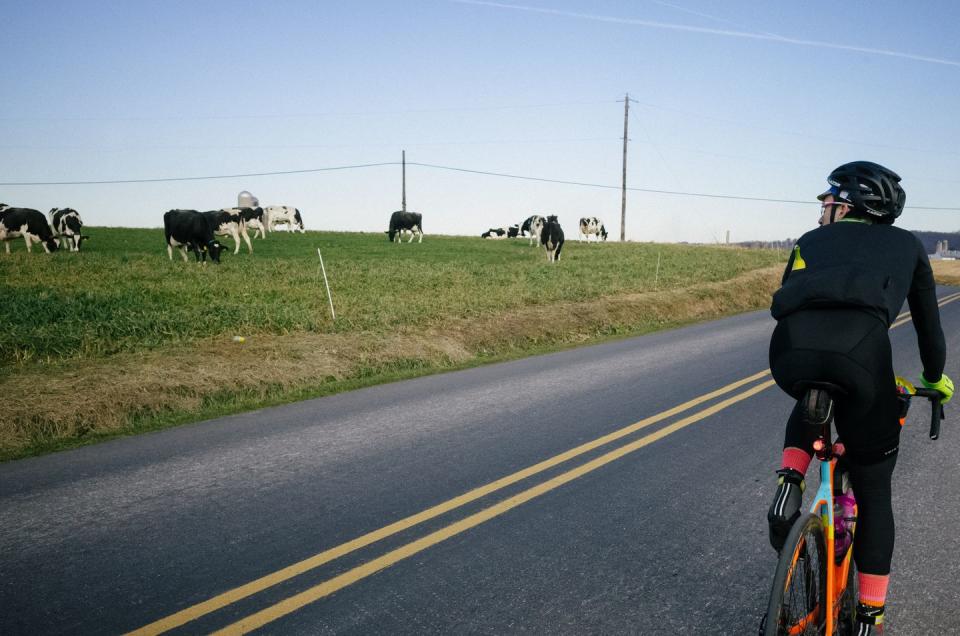
But let's back up–what the heck is a randonnée?
A randonnée (pronounced rahn-doe-nay) is simply a long bike ride, usually over 100 miles and sometimes much longer. In common cycling usage, it typically refers to a non-competitive, long-distance ride that's timed for safety, with several controls (or stops) along the route to keep the riders honest. Amongst randonneurs, this kind of event is also known as a brevet.
The results from any given brevet are more accurately a list of finishers and are displayed in alphabetical order. So while riders can ride as fast or as slow as they like, the only goal is to finish within the allotted time limit while making all the required control stops. I've done all kinds of cycling events in the past, and I found this approach to be pleasantly refreshing. Especially compared to all the events I've ridden where the non-competitive and participatory nature was codified in "spirit" only.
Join Bicycling All Access for more cycling stories
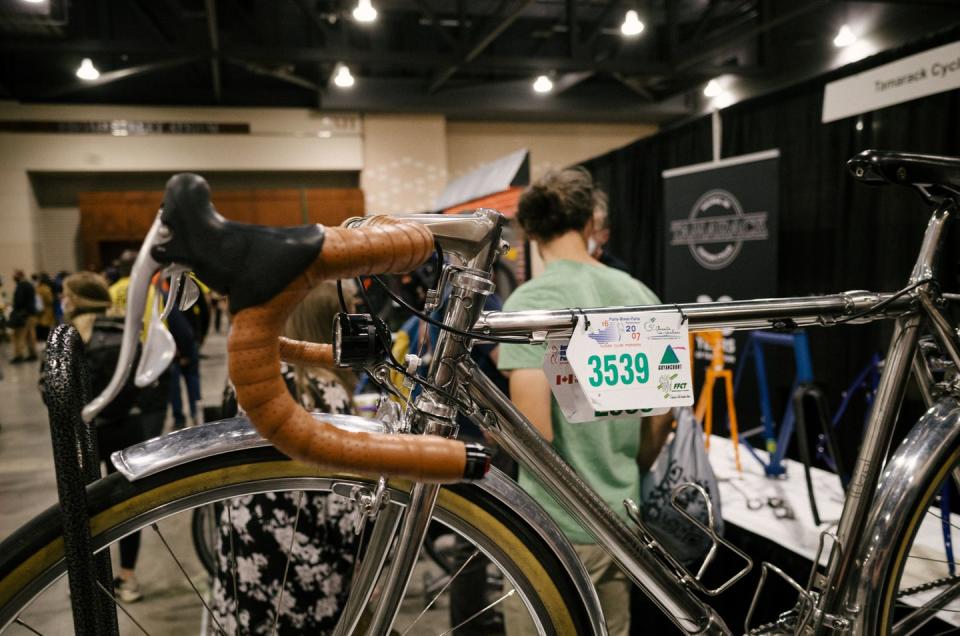
I got somewhat interested in this cycling discipline through my coverage of the 2021 Philly Bike Expo. There was a notable abundance of bikes that looked classic and modern simultaneously, with fenders, dynamo powered lights, and usually a handlebar bag. They seemed to mix a bit of touring, gravel, and road bikes into a machine that looked purposefully built to cover long distances swiftly. Talking to some folks at the show, I also discovered that a 200km brevet organized by the group PA Randonneurs was happening the same weekend, and another one was scheduled for next month, starting just half a mile from where I live in Manayunk, Pennsylvania. So, I set out to try a new—to me—cycling discipline with the Tscheschter Kaundi 200K Brevet on December 4.
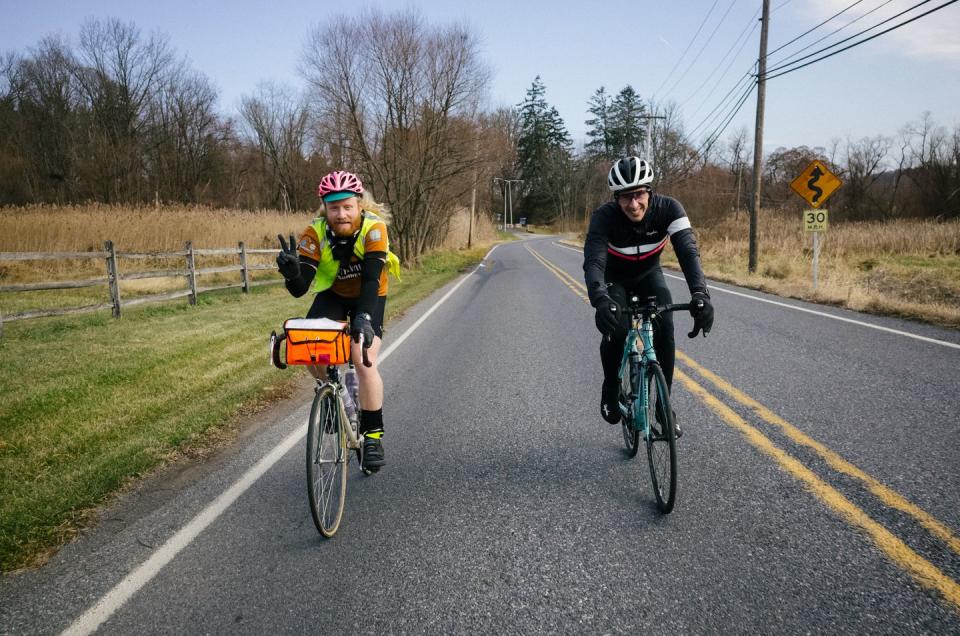
The overarching takeaway from riding my first brevet was that the vibes were exceptionally good. From signing up for the event, emailing with the organizer, to showing up the day of, folks were genuinely friendly and excited to welcome a new rider to the scene. Without being too pessimistic about road racing, this was not how I remember my first road race feeling.
In the days of cycling events costing many hundreds of dollars and sometimes requiring a lottery, I was also shocked by the low cost of the brevet. The entry fee was just $20, and an annual Randonneurs USA (RUSA) membership was another $30. The membership came with a book about randonneuring, which has proven fascinating since I knew so little about it. A typical road race in the northeast is around $50 these days, and you don't get a book or a hot ham and cheese sandwich at the midway control for that money.
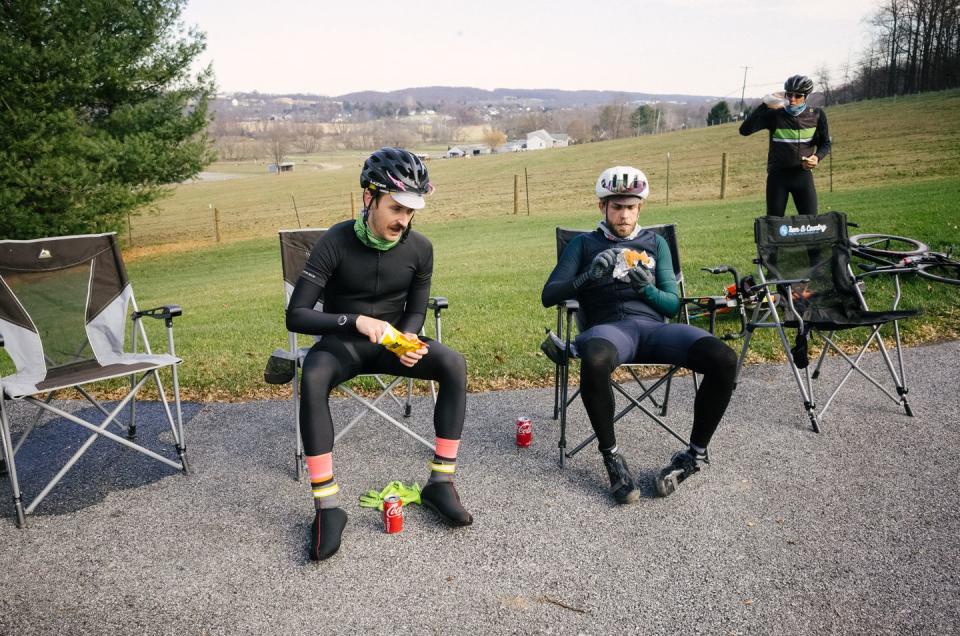
To me, the format of having to stop at control points and have your brevet card signed or stopping to take a picture of your bike with a specific landmark was reminiscent of messenger alleycat races or scavenger hunts. It felt like I was on an adventure with a bunch of people rather than participating in some sort of exercise contest.
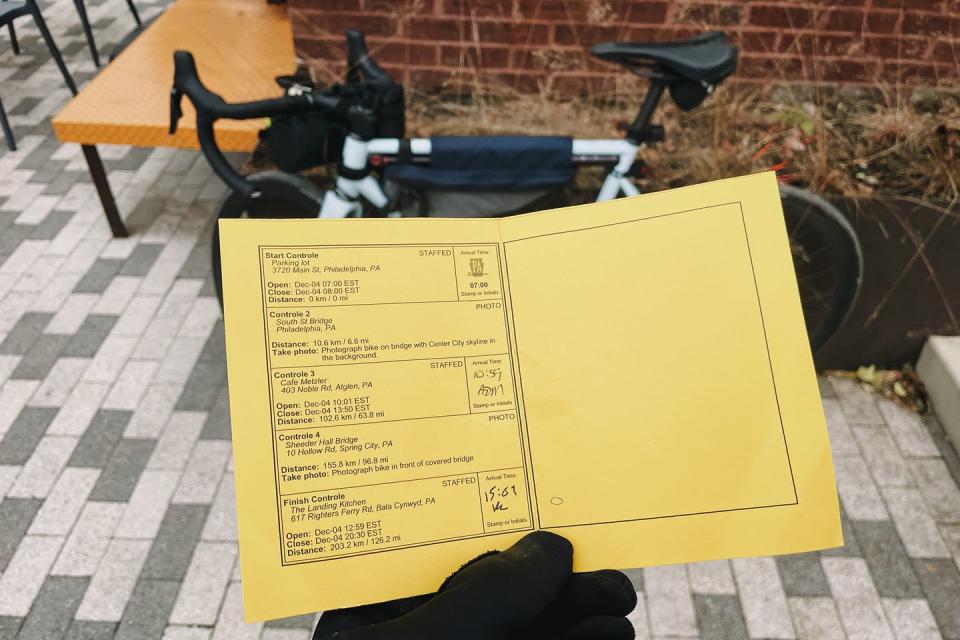
For many, randonneuring is synonymous with much longer distance events than the 200K I rode. The pinnacle of the sport is the 1200km Paris-Brest-Paris Brevet, which happens every four years. I'm not sure that I would ever be interested in riding that sort of distance in the required 90-hour time limit, but I was also pleasantly surprised by just how much I enjoyed my first brevet. I have done long rides like this in the past, often for training, more recently for fun. I didn't expect the brevet format to change my enjoyment of riding 123 miles significantly, but I was surprised to be wrong. The format and rules of the ride seemed to foster camaraderie, and although I wasn't planning on riding more brevets, I'm looking forward to riding more in 2022.
If you're also feeling "rando" curious, my best piece of advice is to reach out to your local chapter of Randonneurs USA. You can find a list of them in the regions tab on the RUSA site. They are organized by state, with some larger states like California or Texas having multiple region based clubs. Many organize brevets as often as once a month and (in my experience) have been enthusiastic and accommodating towards newcomers.
You Might Also Like

